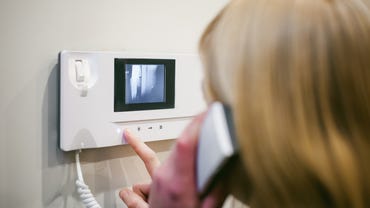[ad_1]

Image: Getty Images
3G is shutting down and some of your most essential tech may soon become unusable.
What steered the evolution of how we use, interact, and communicate with technology 20 years ago will officially retire by the end of 2022, with major US carriers repurposing their satellites over the course of the year. In its place: 5G, the next-generation network that promises considerably faster speeds than 4G LTE and a more unified system for Artificial Intelligence (AI) and Internet of Things (IoT) expansion.
So, what does this all mean for older hardware like cellphones, alarms, and GPS systems that thrive on the 3G spectrum? To put it bluntly, many of the network-driven features will become obsolete, presenting some unforeseen dangers. Fortunately, there are steps that you and your loved ones can take to safely transition from aging to future-proof tech. In some cases, manufacturers may even be able to give your older gadgets new life through software upgrades.
Here is everything you need to know about the “3G sunset”, how it will affect the technology that you use, and what you can do to stay afloat in the ever-changing landscape.
When are carriers shutting down 3G?
While carriers have been planning the closure of 3G since 4G LTE took the reins (and the prospect of 5G being another catalyst) the agenda took a pause during the pandemic. Over the past two years, 3G-reliant services like home security systems and tech for the elderly have become more essential than ever, keeping telecommunications companies from pulling the plug. That is, until 2022, with major US carriers finally giving in and setting new shutdown dates that span across the year.
- AT&T is the first of the big three, closing its 3G network on February 22, 2022.
- T-Mobile has pushed its 3G shutdown to July 1, 2022, after initially planning for an October closing in 2021.
- Sprint, now merged with T-Mobile, will close its 3G network on May 31, 2022.
- Verizon’s 3G network will shut off on December 31, 2022. The carrier has made it clear that “the date will not be extended again.”
You can find more information regarding when the 3G networks close on FCC’s website.
Will my phone still work?

For the greater portion of the 3G era, smartphones enabled users to browse the web, share viral videos, update statuses, and connect with people from around the world. That all remains possible through 4G LTE, 5G, and Wi-Fi networks. With 3G turned off, the iPhone 3GS, for example, won’t be able to make calls or text messages, but can still connect to Wi-Fi to access internet-based applications.
According to the CTIA, “fewer than nine percent of the US wireless connections are 2G or 3G subscriptions.” If you’re using a smartphone that launched after 2014, you likely won’t experience any setbacks from the 3G shutdown. The same applies to flip phones that were released after 2017. Unsure of what year your device was manufactured? The best solution is to check with your local carrier — in person or online — to see if there are any compatibility issues.
More: ZDNet’s top picks for cheap 5G phones
Carriers like T-Mobile and Verizon are also reaching out to 3G customers to help with the transition to 4G and 5G service plans. We’re seeing trade-in offers and incentives that will have your 3G-supported phone swapped with a 5G-supported one for free. And for low-income consumers, the FCC’s Lifeline program will discount qualifying monthly telephone and internet services, making the conversion all the more accessible.
In general, if you or a loved one are using an older phone, this is your call to upgrade.
How will the 3G shutdown affect my car?
Besides ushering in the revolution of smartphones, 3G has played a foundational role in the navigation and alarm-based systems that we rely on during our everyday commutes. With the institution of faster and more reliable 5G, roadside assistance and emergency crash alerts are among the many network-based features that will be affected by the shutting down of 3G. Many cars also have an emergency SOS button that, when pressed, dials to first responders via 3G. That, too, will lose functionality.
Vehicles from popular automakers like Toyota, Lexus, Nissan, Hyundai, Dodge, and more released before 2019 are susceptible to the issues mentioned above. The main reason that newer models still carry 3G receivers, according to Roger Lanctot, director of automotive connected mobility at Strategy Analytics, is for automakers to save on manufacturing costs.
To stay ahead of the curve, you’ll want to ensure that your car supports or can receive hardware upgrades to connect to 4G. As with smartphones, your best bet to stay in the know is by consulting with your local car dealer. While the modification may come in the form of downloadable software or physical spare parts, it will help to keep your vehicle up to date and functioning — especially during times of danger.
More: Why 5G is a crucial technology for autonomous vehicles
How will it affect my home security?

For the past decades, home security and alarm systems have relied on 3G to communicate and monitor suspicious activities. With the 3G shutdown, that line of communication between the home and its service’s central monitoring station becomes non-existent, leaving people who live alone and elders vulnerable.
Fortunately, over the course of the pandemic, many home security companies have proactively been migrating customers from 3G to 4G networks, ensuring that their services remain operational, even after the 3G spectrum is taken down. Unlike smartphones and cars that require disassembling or full-on upgrades, adding 4G functionality to security systems is as simple as having a technician install an external receiver (usually a box or panel).
If you or someone you know is subscribed to a home security plan (ADT, Vivint, SimpliSafe, etc.) a customer representative should have reached out by phone or mail regarding the transition. If not, services like ADT allow you to schedule a free appointment via phone or website to get the conversion started.
Other tech that will be affected
Besides the categories mentioned above, there is a plethora of gadgets and services that rely on the older-generation network which you may not have been aware of. If you own any of the following, make sure to contact the manufacturer and ask what the next steps are. Depending on how old the product is, you may be eligible for a hardware or software upgrade.
- Medical alert devices (fall detectors, communicators, etc.)
- Fire alarms
- Inventory trackers
- Smartwatches
- E-readers (Kindles, Nooks, etc.)
- GPS trackers (including for pets)
- Marine safety devices
Bottom line
With the imminent sunset of 3G, take a moment out of your day to check your devices (as well as those of your loved ones) to ensure that everything is up to date and geared for the future. As technology progresses and new advances replace the old, businesses and customers alike must learn, adapt, and embrace the change so the tech we rely on every day can continue to keep ourselves and those around us safe and informed.
[ad_2]
Source link

